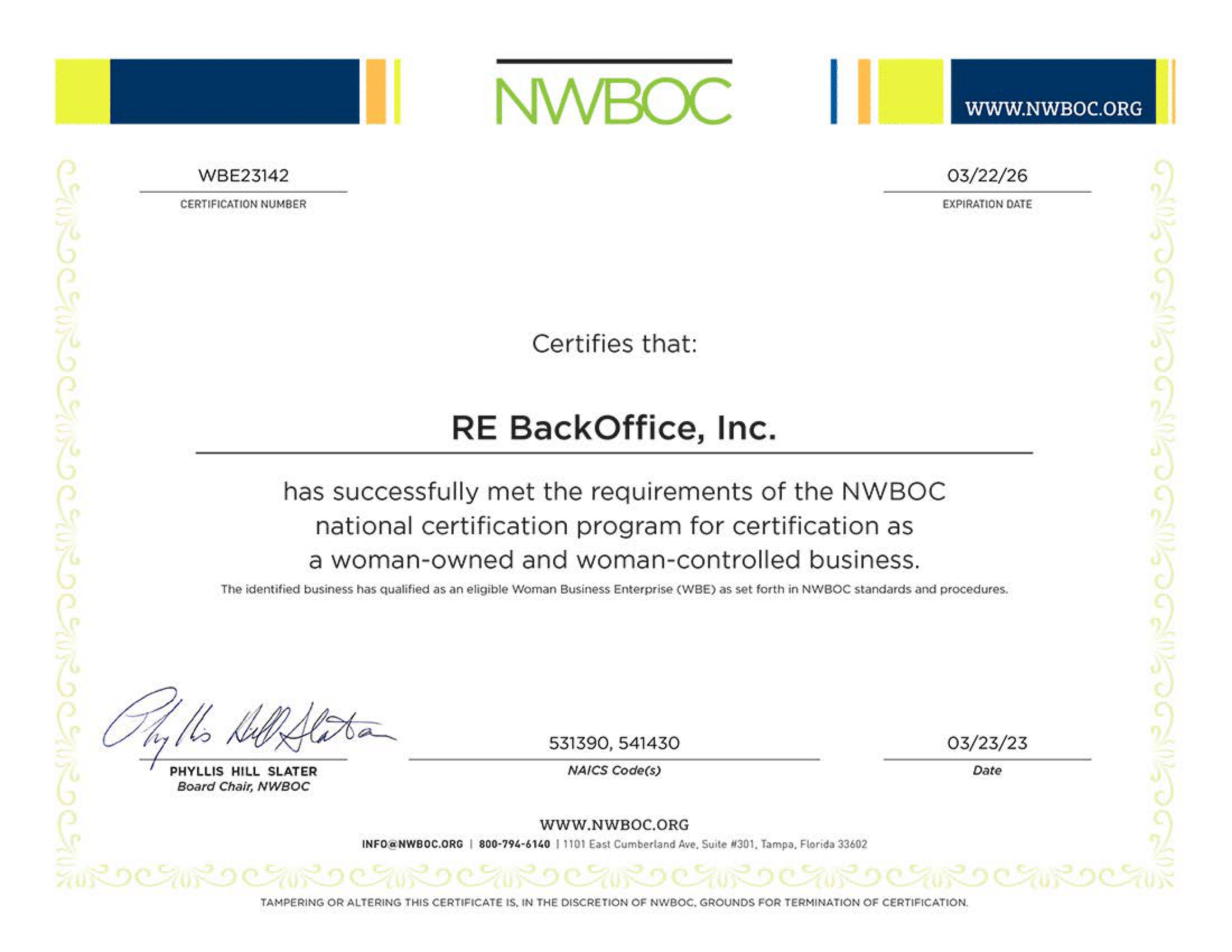For tenants, managing critical dates in lease agreements is crucial for optimizing cost savings and ensuring seamless business operations. Key lease provisions such as options to renew, expand, termination clauses, rent bumps, security deposits, and rights of refusal/offer can significantly impact a tenant’s financial stability. Here’s how-
Renewal notice processing
Renewal is the option to extend the term of the lease after the expiration of the existing lease term. Renewal clauses give the tenant the right to extend the lease term for a specified period of time and at a pre-defined rental rate. However, for the renewal to take effect, the tenant has to provide a notice to the landlord within the time frame specified in the lease. Sometimes, leases have automatic renewal clauses in which case, the lease automatically renews for the next term at a said rental rate if the tenant doesn’t provide a notice to terminate it. In both cases, as we can see, there’s a need to provide notice to the landlord within a stipulated period before the existing lease term expires. Lease administrators track such critical dates and notice requirements and either alert the tenant about them so they can send the notice or send the notice on behalf of the tenant if the tenant has authorized them to do so.
Estoppel notice processing
Estoppel certificates are usually created by the Tenant for Landlord’s use. If the Landlord is in talks with a prospective buyer for their property, or with a lender who secures the loan with an interest in the said property, they may require the Landlord to furnish an estoppel certificate. The prospective lender or buyer of the property may use in their “due diligence” review of the property. The tenant is usually given a time frame of 10 or 20 days within which they have to submit the estoppel certificate to the landlord. Lease administrators in the tenant’s organization are responsible for timely processing of such estoppel notices.
Security deposit returns management
Security deposit is a lumpsum amount paid by the tenant to the landlord as a guarantee for the performance of lease obligations. Security deposits are usually refundable and returned to the tenant at the end of the lease term, provided there is no damage to the property and the tenant has fulfilled all their obligations under the lease. It is the responsibility of the landlord to refund the security deposit within the timeframe stipulated in the lease after the property is handed over back to the landlord by the tenant. If the landlord fails to return the security deposit on time, they are liable to pay penalty to the tenant along with the security deposit amount. Lease administrators on the landlord’s side are responsible for ensuring the security deposit returns happen on time, so the landlord is not in default and thus not liable to pay any penalty. At the same time, lease administrators on the tenant’s team are responsible for ensuring that the security deposit amount is received on time and is accurate.
Rent increase management
Lease administrators are also responsible for managing the increase in rental rates as per the leases. From the landlord’s perspective, their lease administrators are responsible for keeping track of rent increase dates, reviewing the lease clauses related to the rent increase, calculate the new rent as per those and then communicate the same to the tenants within the stipulated time period. At the tenant’s end, the lease administrator is responsible for reviewing the lease clauses related to rent increase and confirm if the rent amount increase specified by the landlord is correct and process the payment if it is accurate while contesting it if the landlord’s calculations are not accurate.
Subordination and non-disturbance agreement (SNDA)
From the landlord’s perspective, their lease administrators assist the landlord in generating SNDA for property sale or debt financing. From the tenant’s perspective, the lease administrators are responsible for updating their lease administration platform in the event of change of landlord or any other obligation related to the SNDA.
Commencement date letters
Lease administrators manage commencement dates and rent commencement dates as per the lease. From the landlord’s perspective, their lease administrators are responsible for reviewing the lease clauses related to commencement date and rent commencement date, keeping track of them and communicating the same to tenants. At the tenant’s end, the lease administrator is responsible for reviewing and updating the rent/lease commencement letters received from the landlord and updating them in the tenant’s lease administration software and process related rental payments accordingly.
Termination, Renewal and Expansion or Right to First Refusal Options:
Termination options: These clauses deal with the choices the landlord and tenant have with respect to ending the lease contract at any time.
Renewal options: These clauses deal with the choices the tenant has to renew the lease with the landlord upon completion of the lease term.
Expansion or right to first refusal options often deal with the tenant’s right to being asked first in the event there’s a vacancy in the premises.
It is extremely important that, tenants are aware of these options in order to make timely strategic decisions.
For example, if you end up finding a cheaper or a better location for your business, you may want to consider terminating your lease mid-term, even if it means paying penalties, because, in the long run, that may work out to be more profitable.
On the other hand, if your property is in a great location and you got a great deal on your rent increase terms, you may want to renew your lease after it finishes its initial term. In such a case, you certainly wouldn’t want to miss out on a chance to renew your lease just because you missed the notice period by 2 days!
Another example, let’s say the premises adjacent to yours is just what you need as your business grows, it will make sense for you to jump on the opportunity the moment it becomes vacant.
Challenges in Managing Critical Dates:
Monitoring Across Multiple Leases and Landlords: Tenants with multiple leases and landlords face the challenge of tracking and monitoring critical dates spread across various agreements. Without a centralized system, crucial dates may be overlooked, leading to missed opportunities or unfavorable outcomes.
Planning Ahead of Lease Expiration: Proactively managing critical dates requires planning ahead of lease expiration. Without adequate time for analysis, negotiation, and decision-making, tenants may find themselves rushing into unfavorable lease terms or missing out on advantageous opportunities.
Timely Notifications: Receiving notifications well in advance of lease expirations, options to renew, or termination dates is essential for tenants to assess their future space requirements, evaluate market conditions, and explore cost-saving alternatives. Delayed or inadequate notifications can hinder decision-making and limit available options.
Multiple Department Involvement: Addressing critical dates often involves multiple departments within an organization, including real estate, legal, finance, and operations. Coordinating and obtaining approvals from various stakeholders can be time-consuming and may lead to delays or miscommunications.
However, challenges in monitoring and planning for these critical dates often arise, requiring proactive strategies to mitigate risks and capture cost-saving opportunities.
Effective Strategies for Cost Savings:
Centralized Lease Management System: Implementing a centralized lease management system or partnering with a lease administration service provider can help streamline critical date tracking and ensure all lease agreements are easily accessible and up-to-date.
Automated Notifications and Reminders: Utilize technology solutions that provide automated notifications and reminders for key critical dates. This ensures timely alerts, giving tenants ample time to assess options, negotiate terms, and make informed decisions.
Early Lease Renewal Negotiations: Proactively engaging in lease renewal negotiations well in advance of expiration dates allows tenants to explore favorable terms, negotiate rent reductions, or secure additional concessions, resulting in significant cost savings.
Outsourcing Lease Administration: Partnering with a trusted lease administration service provider can alleviate the challenges associated with managing critical dates. These experts have the expertise, resources, and technology to efficiently monitor lease agreements, provide timely notifications, and facilitate smooth processes across multiple leases and landlords.
Effectively managing critical dates in lease agreements is essential for tenants to maximize cost savings and make strategic decisions regarding their real estate portfolio. By addressing challenges such as monitoring across multiple leases, planning ahead, receiving timely notifications, and managing multiple department involvement, tenants can seize cost-saving opportunities and mitigate risks. Outsourcing lease administration to a trusted service provider further streamlines these processes, allowing tenants to focus on their core business while ensuring compliance and optimizing financial outcomes. By adopting proactive strategies and leveraging expertise, tenants can navigate critical dates with confidence, unlocking significant cost savings in their lease agreements.







